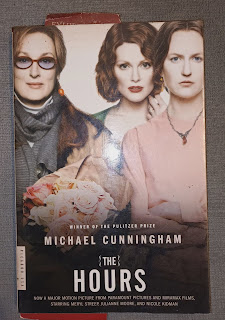
Blessings! As your editor/writer/translator confidante and friend, I send you my warmest regards.
You may be in deep struggle right now, wondering how you may compress every MS into a ZIP folder in order to save "mind" space. Fact is that you need to job out these folders to a professional who will sit down and work on them. A manuscript requires a reader-reviewer, somebody who will comment on the ideas and see if they make sense. The job may be as complex as wanting to re-structure it for the key thoughts to sparkle, or as simple as going through it line by line to check punctuation, grammar, and spelling. In any case, the job needs to be done and you are simply already too busy. Why don't you try calling "confidante"? I care about your ideas as surely as I care about your desire to meet your deadlines. Merely staring at those pile of MS will just prolong your agony. So call me.
Job Order Inquiry
Think about this: A 100-page manuscript arrives via- email, asking me for a quote. "How much," the inquirer asks, "would it cost me if I ask you to edit my work?" For my immediate response, I usually get back to this prospect and asks in return, "What exactly do you want me to do with it?"
This procedure is similar to a doctor's probing when you go to his clinic because you are feeling sick. The doctor probes for symptoms first before giving his diagnosis and prescribing medicine. In a way, although the editor knows exactly what needs to be done after reading the manuscript at least three times, she will still ask "What do you want me to do with it?", to learn about the writer's specific concern. In my experience during editing, sometimes, the writer will be open to suggestions but this does not always mean that he will follow what I suggest. Sometimes, the writer remains adamant about a word and punctuation I have marked as unsatisfactory or incorrect, because it's "his style".
Asking "What do you want me to do with your MS," eliminates having to undo what I've done. I will always tell the writer what seems to be wrong, and hint at possible re-writing, but If he tells me to simply copy-edit, I will do only as I'm told. But if you ask me to review the MS, we shall sit down together and I will guide you to how the work can be improved.
Up to the end of the process, the writer has full control over his material. Unless the writer says, "You can do anything with it," (and maybe he wants a co-author and not an editor) I will be cautious to strike out a seemingly obtrusive adjective, or re-arrange the order of words according to my whim. The writer, after all, knows that when he submits something for publication, it must be a final draft, a product of long and meticulous thinking and rewriting, and not merely an output from freewriting.
Prospects
Reading is work. When somebody asks me why I charge a reading fee, I say, "Because that's the first thing I do, and after that, I will do more work if needed." The following are misconceptions about what we do as editors: 1) That we check only the grammar, spelling and punctuation (2) That we often change the writer's meaning (3) That anybody who knows English can do what we are doing.
You pay for one or all kinds of editing depending on your need:
Content Edit--here one-on-one consultation is a must because the manuscript isn't there yet. The writer may think that he has already developed his outline but in fact, the development is weak, generic, and disorderly. The second one, Structural or Macro Edit focuses on flow and transition and polishes the logical arrangement of ideas. After following the author's outline, structural changes are applied in paragraphs lacking in controlling ideas, excessively detailed, or smudged with abstract examples. The third type is copy-editing, a line by line check of your spelling, grammar, and punctuation -- in other words, your style. The editor may comment on the tone but may only suggest changes. These three sometimes come in one package. But "confidante" can help in only as far as the client writer demands.
In The Can
Ang Biblia Para sa Bagong Bayani -- (PBS anthology) Work Involved: contacting writers in Filipino, collection and choosing articles, general editing, managing of deadlines, interacting with two other readers, meeting with the writers, copy-editing, proofreading. Now at layout stage.
AWANA START UP -- (AWANA INC. children's manual) Work Involved: back translation, copy-editing, and coordinating with production manager. Now at layout stage.
Movie Queen, Pagbuo ng Mito at Kapangyarihang Kultural ng Babae sa Lipunan: (NEW DAY. Book 277 pages) Work Involved: Checking consistency in use of Language, Review and Copy Editing. Now back to the writer for rewrite.



No comments:
Post a Comment